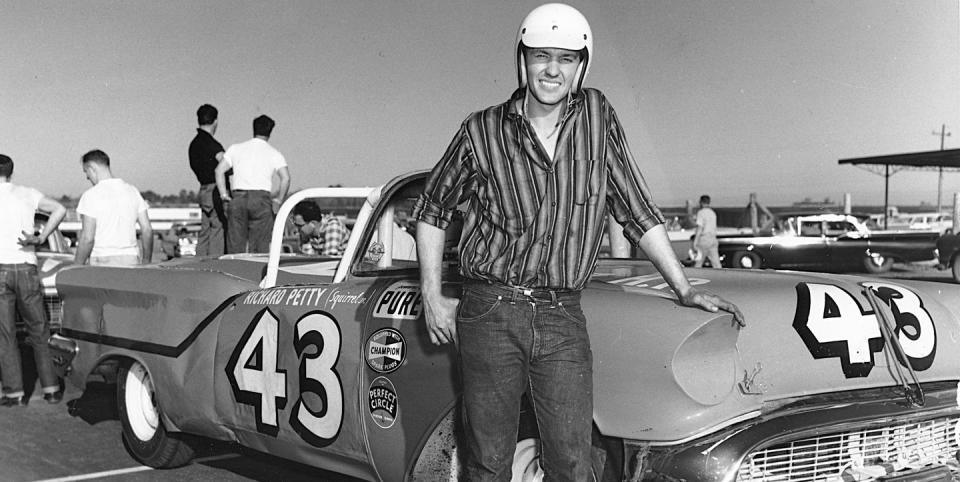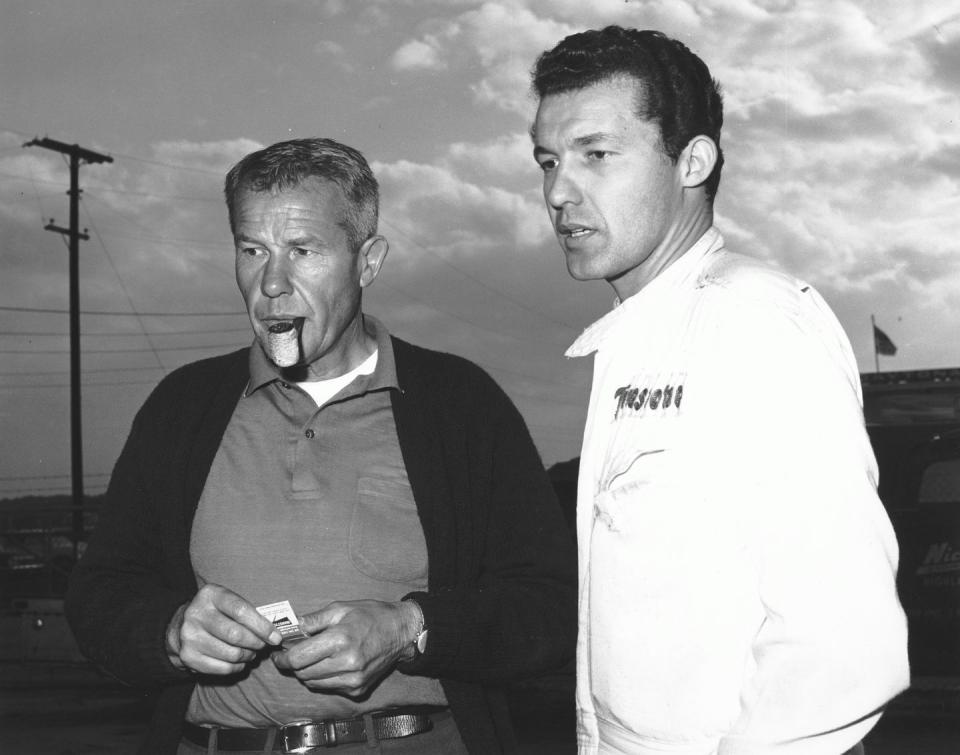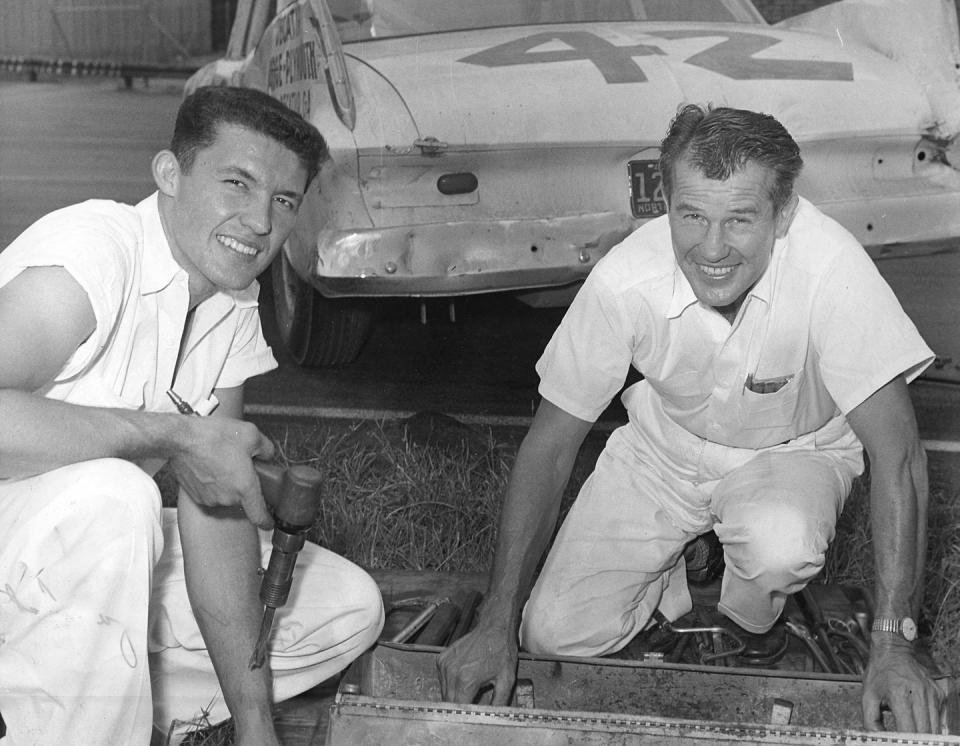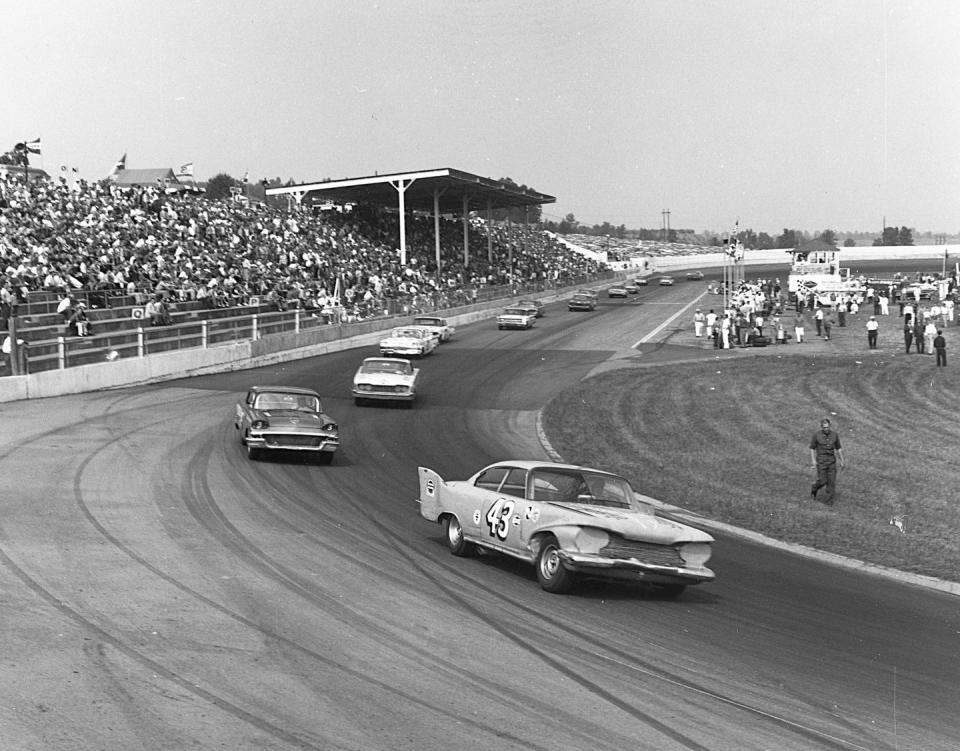How Richard Petty Was Shortchanged From NASCAR Cup Win No. 201

The record books say that Richard Petty's first of 200 NASCAR Cup wins came in 1960. Richard says that's not exactly true.
Richard's greatest rival in his early years in NASCAR was his father, Lee Petty.
Petty went on win a record 200 wins in 1,184 career starts in Cup.
Richard Petty would have retired with 201 career Cup Series victories if his father, Lee, hadn’t been so obsessed with money. Or maybe it was simply a matter of expressing his parental authority.
It happened like this:
In June 1959, at the 1-mile dirt Lakewood Speedway in an Atlanta suburb, Richard and Lee were flagged 1-2 in a 150-lap “Sweepstakes” race featuring convertibles and sedans. Moments after the checkered flag, Lee protested the result. He argued strenuously—every Lee Petty argument was strenuous—that he was first and his son was second. Their finishing order, he insisted, was backward and should be reversed. (There was no issue with the other top-5 finishers Buck Baker, Curtis Turner, and Tom Pistone).

Such disputes were commonplace when scoring was humans putting pencil to paper every lap. Now, with computer technology and transponders, errors have virtually disappeared. In this case, the protest was upheld after a lengthy review. Richard, just 21 but wise beyond his years, knew better than to protest the protest of what would have been his first victory. He knew money was important, and Petty Enterprises needed all it could get.
The Lakewood 150 entry offered an extra $250 if the winner drove a convertible … like Richard’s No. 43 Oldsmobile. It also offered an extra $450 if the winner drove a 1959 current-year model … like Lee’s No. 42 Plymouth. Lee did the math and realized his business would benefit by his winning. His bonus would beat Richard’s, and that $200 difference was serious money back then. Lee didn’t hesitate to take the money and the winner’s trophy.
“Second was the best I’d ever run, so I was still tickled to death,” Richard recently told Autoweek. “I was out of the car jumping around ‘cause I’d just won for the first time. Then, somebody came over and said Daddy had protested the scoring. Later, he explained that we’d made more money with him winning and we needed every little bit we could get.

“Really… it didn’t matter that much to me. I was just a 21-year-old kid happy to be there. All I cared about was that we had enough cars and money so I could keep racing. It didn’t make that much difference as long as the company came out ahead. In the end, I think the scorers got it right.”
The next day, in the Atlanta Constitution, a sportswriter quoted Lee: “Either way you look at it, we are 1-2. But I won the race; I lapped Richard twice when he was in the pits. He’s my boy and I would love to see him win a race. But when he wins one, I want him to earn it. This wouldn’t be the right way for him to get his first victory. I would have protested my mother if I needed to.”
A year before Lakewood, there had been Toronto, the first of Richard’s “official” 1,184 starts and the first of his 984 losses. Again, Lee was in the middle of things.
Richard’s debut was July 1958 in a 100-lap race at the third-mile paved Canadian National Exposition Speedway. Two weeks after turning 21—to Lee, that was manhood—Richard qualified seventh in the No. 142 Oldsmobile. He barely reached halfway before crashing out to 17th. Lee, pole-sitter in the No. 42 Oldsmobile, led the final 29 laps in beating Cotton Owens, Jim Reed, Shorty Rollins, and Johnny Mackison.


 Yahoo Autos
Yahoo Autos 